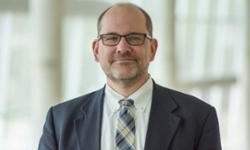- Residency
- Welcome
- Program Details
- Curriculum
- Rotations
- Autopsy
- Bone Marrow
- Clinical Chemistry
- Clinical Microbiology
- Community/Private Practice
- Cytogenetics
- Cytopathology
- Flow Cytometry
- Lymph Nodes
- Molecular
- Neuropathology
- Surgical Pathology
- Transfusion Medicine
- Transplant
- Wet Heme
- Conferences
- Salary & Benefits
- Facilities and Resources
- Residency FAQs
- Teaching and Research Opportunities
- Health Educators and Academic Leaders (HEA
- Residency Events
- Apply
- Current Residents
- Alumni
- Fellowships
- Awards and Accomplishments
- Contact
- Medical Students
- Related Resources
- About UNMC and Omaha
Nebraska Medicine offers a comprehensive microbiology laboratory with bacteriology, serology, mycobacteriology, mycology, and virology sections. In particular, our pathology residents rotate through all sections to understand microbiology basics including molecular virology and other molecular microbiology techniques. Importantly, the resident will understand the culture of the microbiology laboratory and how it differs from other clinical pathology disciplines. Daily activities include a case review with the clinical microbiology fellows and Microbiology director and further discussions of specific pathogens. In addition, pathology residents are relied upon by the microbiology director on a number of cases where collaboration with pathology staff is required. Lastly, due to our association with the Nebraska Public Health Laboratory, the pathology resident is also involved in discussion of cases for not only Nebraska Medicine, but the region as a whole (West Nile Virus, Salmonella epidemiology, etc.).
A Resident's day-to-day on the Microbiology Rotation
We have three required microbiology rotations during residency. On a typical day, we rotate through various benches in the micro lab during the morning. These benches include blood, wounds, stools, respiratory, virology, and mycology. We learn the general workflow of the lab from how specimens are initially triaged and processed to the final organism identification and reporting. There is a daily meeting with the rotation director, Dr. Fey, and the two microbiology fellows. At this meeting, interesting cases from the previous day are discussed as well as any lab updates. Twice a week we attend plate rounds with the microbiology fellows and the infectious disease team. We discuss various topics and current patients that the infectious disease team is seeing. Our lab uses state-of-the-art technology including MALDI-TOF and various BioFire FilmArray panels. We also have a BSL-3 laboratory for mycobacterial specimens.

Paul D. Fey, PhD
- Residency
- Welcome
- Program Details
- Curriculum
- Rotations
- Autopsy
- Bone Marrow
- Clinical Chemistry
- Clinical Microbiology
- Community/Private Practice
- Cytogenetics
- Cytopathology
- Flow Cytometry
- Lymph Nodes
- Molecular
- Neuropathology
- Surgical Pathology
- Transfusion Medicine
- Transplant
- Wet Heme
- Conferences
- Salary & Benefits
- Facilities and Resources
- Residency FAQs
- Teaching and Research Opportunities
- Health Educators and Academic Leaders (HEA
- Residency Events
- Apply
- Current Residents
- Alumni
- Fellowships
- Awards and Accomplishments
- Contact
- Medical Students
- Related Resources
- About UNMC and Omaha

